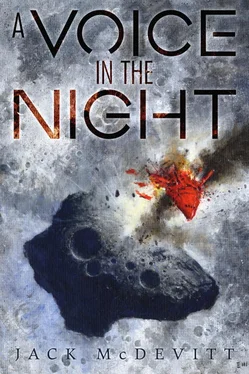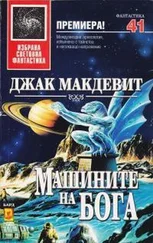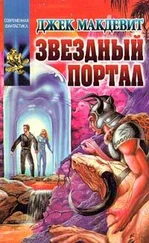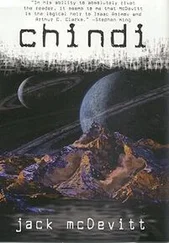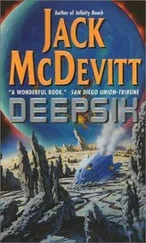One possibility would have been to create an alien vehicle, send a startled message back, along with pictures. ‘It tracked me for about an hour. Then it turned away and disappeared within minutes.’
But I couldn’t get that one past my conscience. And Morris wouldn’t have approved.
I also thought about an asteroid with a feature on it like a temple. Or a face. Faces were good. But it would have to get lost and eventually become a historical mystery like Stonehenge or the Mary Celeste or Judge Crater, and I knew I’d never be able to keep my secret. Eventually I’d unburden myself to Morris, and embarrass him. I couldn’t have that.
I did the right thing, of course, but what a blown opportunity.
On Day 24, I passed the orbit of Uranus. One of the radio people noted the event, remarking that I was now in God’s country. The Kuiper Belt lay ahead, beginning near Neptune. Then Pluto. And finally the Oort Cloud, roughly a light-year distant. It would be a long ride, even for the Excelsior .
I was several days beyond Uranus when Liberty relayed an interview from CBS. The interviewee was Colin Edward, who was identified as the chief of operations for NASA. Chief of Operations. That had been Morris’s title.
Damn.
Edward talked about plans for the future, where the space program hoped to be in ten years, and, yes, he said, the hunt for the Coraggio was on schedule. “But you have to realize,” he said, “that we’ve heard nothing from the ship for several weeks. I think we need to face reality: It’s lost out there, and our chances of finding it are slim at best.”
I’d never heard of Colin Edward. And when I did a quick search I discovered he’d been a major fund raiser for President Ferguson. He was another political operative. This time as chief of operations.
A few minutes later, I got another jolt: Calkin had resigned. His replacement was somebody else I’d never heard of.
I remember thinking that I was glad to be out on the far side of Uranus.
I waited, hoping to get a message from Morris saying he’d gone back to Huntsville. But there was nothing.
During the early morning on Day 30, the end of the first month, I made my standard report and signed off. By then, I was far enough out that a transmission exchange took seven or eight hours. A reply came in somewhat after 1300: “Copy your numbers, Excelsior . Your old boss asked me to say hello.”
They wouldn’t even let him near the mike. I guess they were afraid he might say something negative.
I responded by asking that someone tell Morris I missed him. Then I simply drifted through the electronic complex of what had become home while whatever remained of my enthusiasm for NASA and the Global Initiative melted away.
That evening I set the automatic responder to send the twice-daily reports to Liberty, and the timer to wake me when we were two days from Minetka. Then, for the first time since leaving Earth, I slept.
I had no sense of the passage of time. When I was conscious again, it was Day 62. I was more than four and a half billion miles out, well into the Kuiper Belt. Minetka lay some eighty million miles ahead. It was time to start braking.
To do that, I had to turn the ship around and point the tubes forward. I checked the scopes first to ensure there was nothing immediately ahead. Turning the Excelsior at its current velocity was the most dangerous part of the flight, because it brought the ship out from behind its shield and exposed it to whatever might lie in its path. When you’re traveling at 864 miles per second, it doesn’t take a very big pebble to make a very large hole. The turn would require four minutes and eleven seconds. Once it was completed, and the engines had come online again, the danger would all but evaporate because anything that posed a threat would be blown away.
The Kuiper Belt, of course, doesn’t have anything as specific as a boundary. It constitutes a vast ring of dust, ice, and rocks orbiting the sun at a range of approximately three to five billion miles. Thousands of the rocks are more than a hundred miles across, several with a greater land surface than North America. Minetka ranks among these.
I had to delay the turn for about half an hour because the scopes were picking up light debris in our path. When it was clear, I swung the ship around and started the engines. We began to decelerate.
I informed Liberty that the maneuver had been successfully completed. The response, “Copy that, Excelsior ,” arrived after thirteen hours.
The Coraggio’s last report had been to signal completion of the same turn. She had gotten this far.
If you read about the Kuiper Belt, it sounds crowded: millions of rocks and ice chunks constantly bumping into one another. But seen through the scopes, it was strictly empty sky. I’d seen some of the images Lucy sent, so I wasn’t surprised. And I can’t say I was disappointed, because I didn’t want to get anywhere near a collision. Still, I’d have liked to see something. In any case, I didn’t go back to sleep.
Now and then I got a blip on my screens. But of course I never saw anything that was close. We were moving too quickly. Anything nearby became, at best, a blur. By then my velocity was down to 414 miles per second. Crawling along.
And finally it was time to send Lucy a radio message. Because I had no way of knowing where the Coraggio might be, my best chance was a general broadcast. “Lucy,” I said, “this is Sara. I’m in Excelsior . Do you read me? Are you there? Please respond.”
I got a lot of static back. After about twenty minutes, I tried again. And continued to resend at scattered intervals. If she was close to the plutoid, she’d hear it.
I’d long since stopped asking Liberty if the situation had changed, if they’d heard from Lucy. I remained coiled in a silence disturbed only by the rumble of the engines. As long as Morris had been there, at the other end, I hadn’t felt so alone. Now—
I looked out at the sky, illuminated by countless stars. And at the sun, which at this distance was no more than a bright star itself. And I wondered whether anyone else, ever, would come out here and look around. I tried calculating the odds, but there were too many unknowns. Human beings are always talking about instincts. Instincts are of course evolutionary impulses left over from a time when people hung out in jungles. Theoretically, I don’t have any of those. Still, while I couldn’t justify a conclusion one way or the other, it seemed unlikely that anybody else would follow. Something buried deep in my software assured me that the great experiment was ending.
When two hours had passed with no reply, I notified the space center that my first attempt to communicate with Lucy had failed.
Midway through Day 64, I was down to 216 miles per second. I scanned the area in all directions for any sign of the Coraggio , but there was nothing other than an occasional rock.
I adjusted course, swinging gradually to port, putting the Excelsior into a broad curve. When, finally, I encountered Minetka, I’d be moving alongside it at a matching velocity.
Читать дальше
